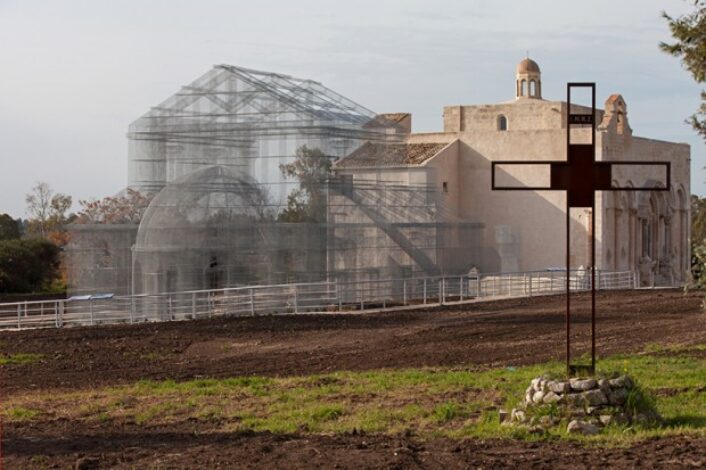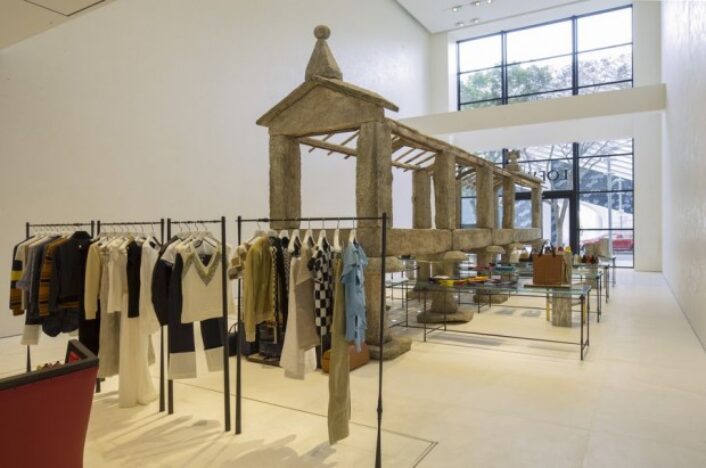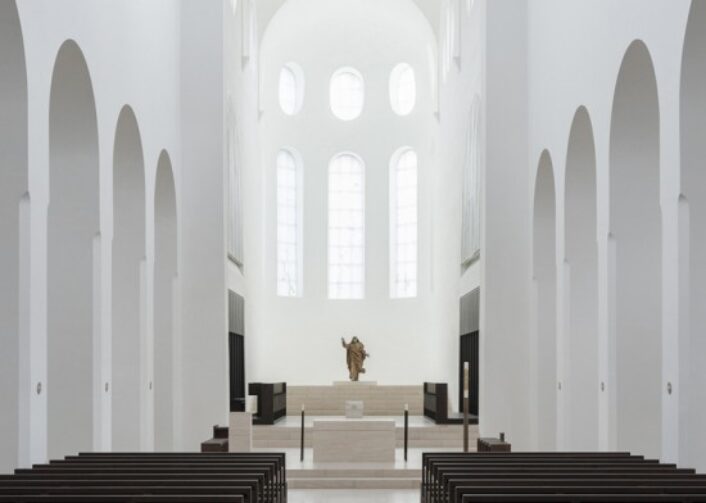Architecture
Riyadh’s wire mesh installation
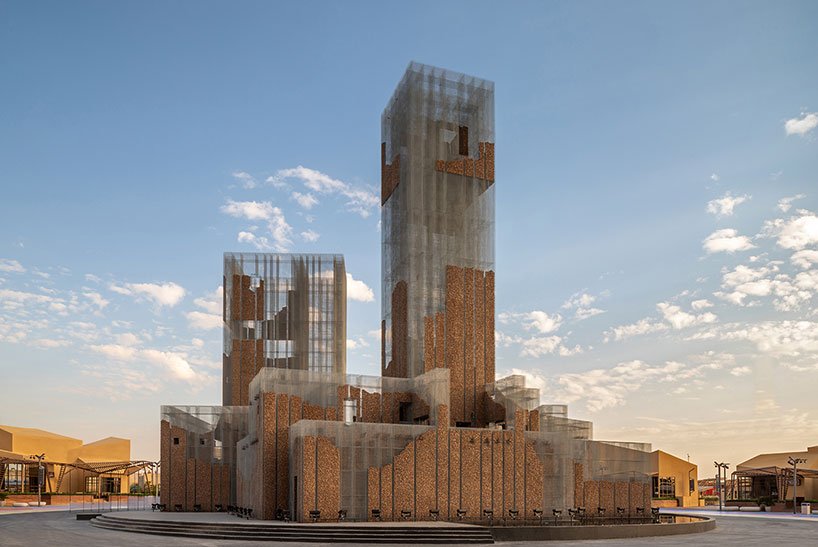
Tresoldi’s mesh architectural fortress.
Image courtesy of: Design Boom, photographed by: Roberto Conte
Edoardo Tresoldi, along with his new interdisciplinary lab Studio Studio Studio, recently installed a large-scale pavilion called “Gharfa” in Riyadh, the capital of Saudi Arabia. The piece peaks at 26 meters and draws from local ruins. As for location, it couldn’t be more perfect… it is located next to the UNESCO World Heritage Site of At-Turaif District.
Tresoldi says that the project “stages the intimate relationship between man, landscape and architecture through the reinterpretation of the human relationship with cultural archetypes.”
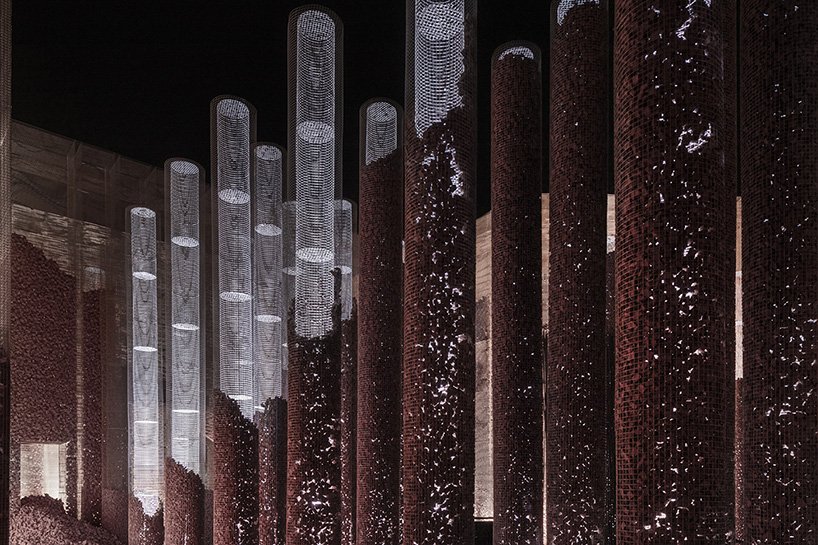
The project employs the technique of mesh wiring and Tresoldi’s famous “Absent Matter Approach.”
Image courtesy of: Design Boom, photographed by: Roberto Conte
It was last September that Saudi Arabia opened it’s doors to tourists as an initiative to diversify their oil-dependent economy. “Gharfa” was commissioned by the Diriyah Season Committee and is located on “Diriyah Oasis”, a temporary creative project designed by the Dubai-based studio or DesignLab Experience.
Nearby, the At-Turaif District will soon open and hopes are that it will be a cultural center for museums and institutions. Without doubt, this showcases the country’s desire to expand their cultural offerings.

Magaldi’s musical segments are played separately in different areas of the complex. However at the center, the musical arrangement comes together and can be heard as the full composition. According to the musician, the visitor is able to “experience their own personal audio mix” as they walk through the installation.
Image courtesy of: Dezeen, photographed by: Roberto Conte
Tresoldi is known for large-scale wire mesh sculptures that typically blend into their surroundings. However here, he creates a sculpture that is an architectural fortress and offers a peak at what is happening inside. The artist uses cork to outline and carve out spaces and paths, and also to mimic Diriyah’s local mud-brick architecture.
Gharfa is meant as a theatrical experience and Tresoldi worked in collaboration with the artist Alberonero, the musician Max Magaldi, and garden designer Matteo Foschi.

A “ceiling of clouds.”
Image courtesy of: Dezeen, photographed by: Roberto Conte
Tresoldi, as much as possible, stayed true to Riyadh’s history and architectural culture. The pavilion’s entrance is formed by a geometric cut-out with a triangular top, a nod to a simple version of traditional Arabian doorways.
In addition, the artist laid carpet underneath a digitally-created version of a “ceiling of clouds”, a nod to the culture’s floor covering. Finally, Tresoldi used a lot of symmetry as is common in Arabian decor.
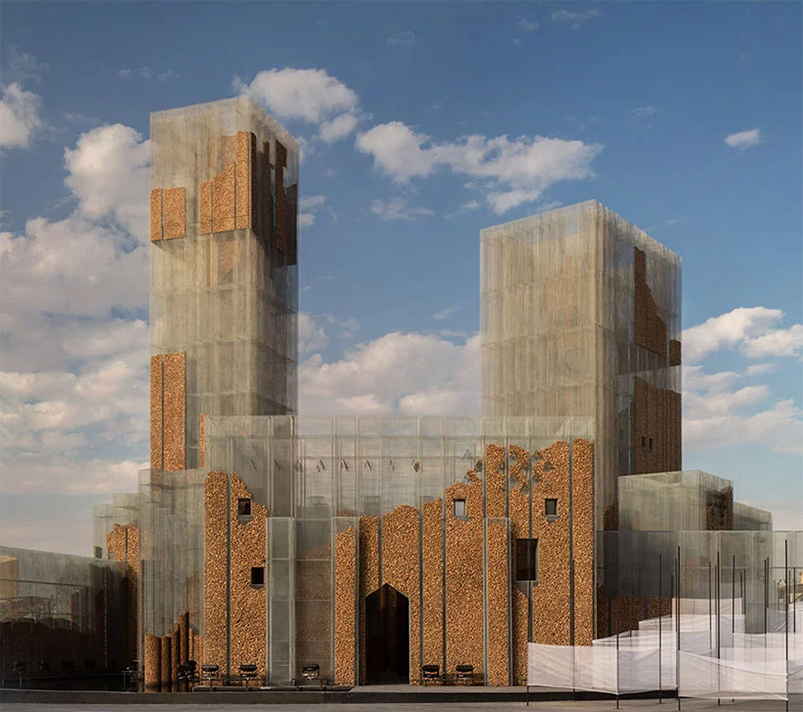
The site of “Gharfa” was originally the location of the Saudi Royal Family’s residence and the country’s first capital from 1744 to 1818. Thus, this is a place of great importance!
Image courtesy of: Design Boom, photographed by: Roberto Conte
This is indeed a very exciting time for Riyadh… major changes are happening and new realities are occurring. Tresoldi said, “Gharfa shapes an expressive experience that first shatters and then restores the thin line between collective imagination, individual imagery, and narrative fiction.”
